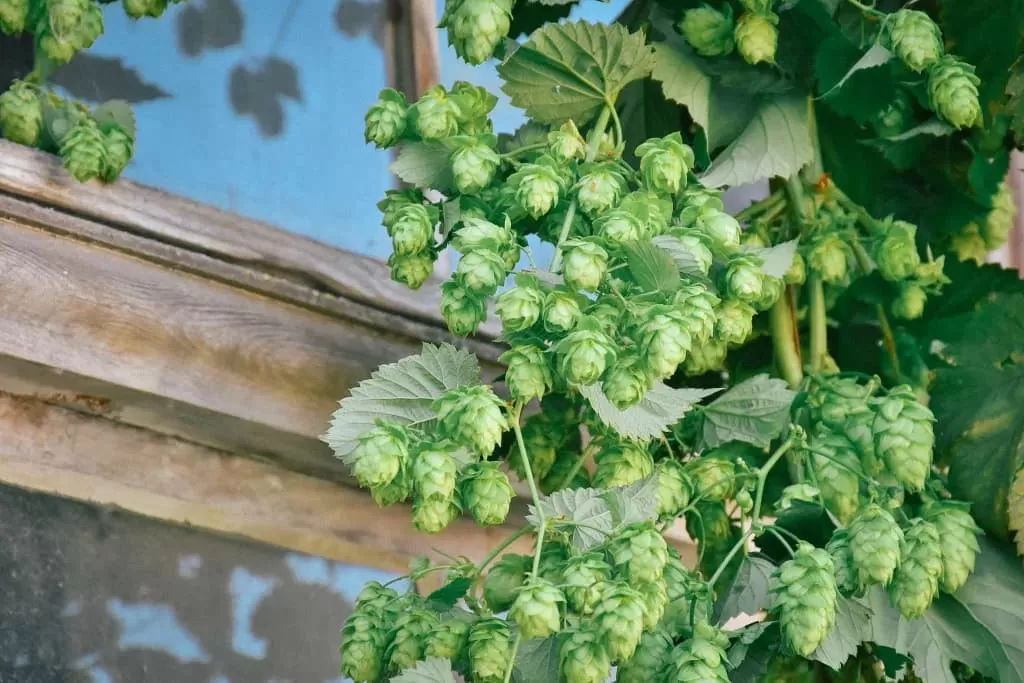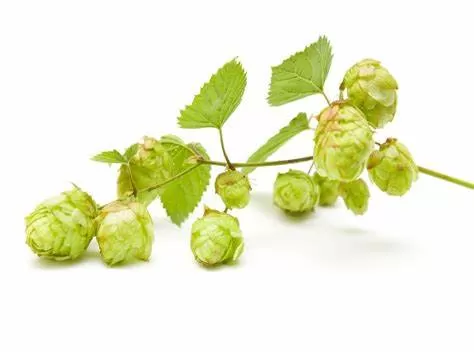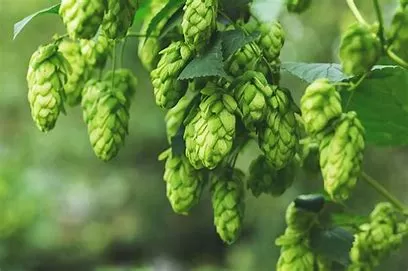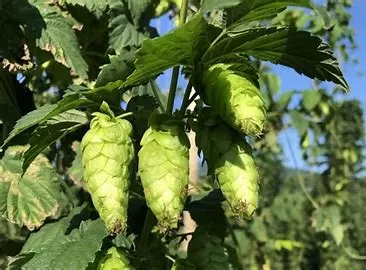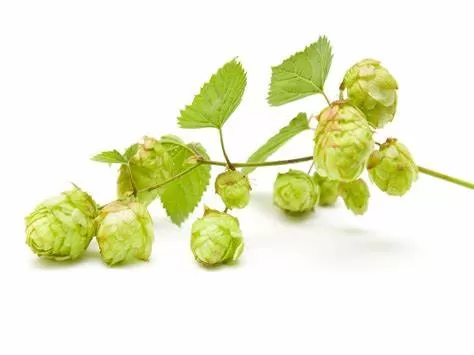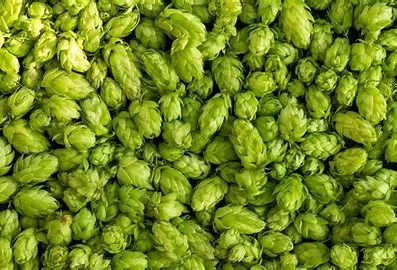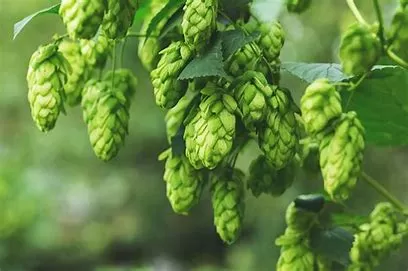- 0086-571-85302990
- sales@greenskybio.com
What does hops do to the brain?
2025-04-02
Hops, scientifically known as Humulus lupulus, are primarily recognized for their role in brewing beer, where they impart a distinctive flavor and aroma. However, beyond the world of brewing, hops have long been used in traditional medicine for their sedative and calming properties. Recent scientific investigations have begun to uncover the impact hops can have on the brain, revealing both potential benefits and risks associated with their consumption. This article explores the various effects of hops on brain function, delving into the mechanisms by which they influence neurological health and considering the broader implications for mental well-being.
1. Chemical Composition and Neuroactive Compounds
Hops contain a variety of bioactive compounds, with the most noted being flavonoids, bitter acids (such as humulone and lupulone), essential oils, and the unique prenylflavonoid xanthohumol. These compounds collectively contribute to the physiological effects of hops, particularly their influence on the central nervous system.
Xanthohumol, in particular, has drawn attention for its neuroprotective properties. This compound has been shown to cross the blood-brain barrier, allowing it to directly interact with brain tissue. Its antioxidant properties help in neutralizing free radicals, potentially reducing oxidative stress and inflammation in neural pathways.
2. Hops and Sleep Regulation
Perhaps the most established effect of hops on the brain is their sedative property, primarily utilized in the promotion of sleep. Traditional medicine has long employed hops as a natural remedy for insomnia and anxiety due to their calming effects. This is believed to be related to the modulation of the neurotransmitter gamma-aminobutyric acid (GABA) by the compounds in hops.
GABA is the brain's primary inhibitory neurotransmitter, which means it reduces neuronal excitability and helps promote relaxation and sleepiness. Hops can enhance the action of GABA receptors, leading to an increase in GABAergic activity that calms brain activity and facilitates better sleep. This makes Hops Extracts attractive as a natural ingredient in herbal supplements aimed at improving sleep duration and quality.
3. Anti-Anxiety and Mood Modulating Effects
The calming effect of hops extends beyond sleep, with research suggesting potential anxiety-reducing properties. By influencing GABAergic pathways, hops can help reduce symptoms of anxiety and stress. This effect is particularly significant for individuals experiencing mild to moderate anxiety, as hops may offer a natural alternative or adjunct to conventional treatments.
Moreover, experimental studies indicate that xanthohumol may positively impact mood by reducing levels of corticosterone, a stress hormone linked to depressive states. By modulating hormonal responses to stress, hops may contribute to emotional stability, although more research is needed to fully substantiate these effects in human subjects.
4. Neuroprotection and Cognitive Function
Emerging research has focused on the neuroprotective qualities of hops, particularly xanthohumol, which shows potential in preventing neurodegenerative diseases. Its antioxidant and anti-inflammatory properties help mitigate damage from oxidative stress and chronic inflammation, which are significant contributors to conditions like Alzheimer's and Parkinson's disease.
In animal models, xanthohumol has shown promise in improving cognitive performance and memory. While these findings are promising, human trials are necessary to validate the extent of these benefits and to explore the potential of hops as a cognitive enhancer.
5. Potential Risks and Considerations
While the effects of hops on the brain appear largely beneficial, there are potential risks and considerations that must be acknowledged. Consumption of hops in the form of beer may lead to negative health effects due to alcohol content, such as cognitive impairment when consumed excessively. Moreover, individuals who are sensitive to hops or have allergies may experience adverse reactions.
In highly concentrated forms, such as supplements, the long-term effects of hops remain inadequately studied. Therefore, moderation and consultation with healthcare professionals are prudent when incorporating hops into a wellness regimen, especially for individuals with underlying health conditions or those on medication.
6. Broader Implications for Mental Health
The soothing properties of hops underscore their potential use in mental health management. As societal awareness of mental wellness grows, hops present a viable option to enhance relaxation and emotional well-being. This aligns with a broader movement towards integrating natural and holistic approaches into mental health care.
The intersection of traditional knowledge and modern scientific inquiry offers a comprehensive understanding of how hops can support mental health, highlighting their role in integrated therapeutic strategies.
Conclusion
Hops, beyond their culinary and brewing significance, emerge as an intriguing subject of neuroscientific study. Their effects on the brain, spanning from sleep regulation and anxiety reduction to neuroprotection, highlight the potential benefits they offer for mental health and cognitive function. While promising, it remains crucial to approach hops with an understanding of their limitations and potential risks. Continued research is essential to fully elucidate the breadth of hops' impact on neurological health and to optimize their use in promoting mental well-being. As evidence grows, hops hold promise as part of a balanced approach to neurohealth, bridging the gap between traditional practices and modern health solutions.
-
Are Hops Good for Your Liver?
2025-04-02
-
Main Purpose of Hops: Beyond Beer Brewing
2025-04-02
-
Does hops boost testosterone?
2025-04-02
-
Does Hops Extract Make You Sleepy?
2025-04-02
-
What Do Hops Do for the Body?
2025-04-02





